This article has been last updated on October 16, 2023 to reflect the latest research and statistics. Our editorial team has ensured you’re viewing the most current data on this topic. Need help or have a question? Email us.
If you’re an animal lover, undoubtedly in your past is a childhood memory when you thought it would be so cool to own a chimp, a tiger, an elephant, or even an endangered or threatened species for your wild animal menagerie.
At WAF (World Animal Foundation), we hope you’ve rethought this fantasy plan since then and decided that owning exotic animals is a momentous undertaking.
Exotic pet ownership has several non-consistent regulations within each state and falls under the USDA (Department of Agriculture). However, dangerous wild animals are kept as pets in the USA legally and unlawfully.
The sad reality is that a dangerous wild animal belongs in its natural habitat. It creates a whole set of problems like poaching, trade, and import of potentially dangerous species.
Legal Exotic Pets
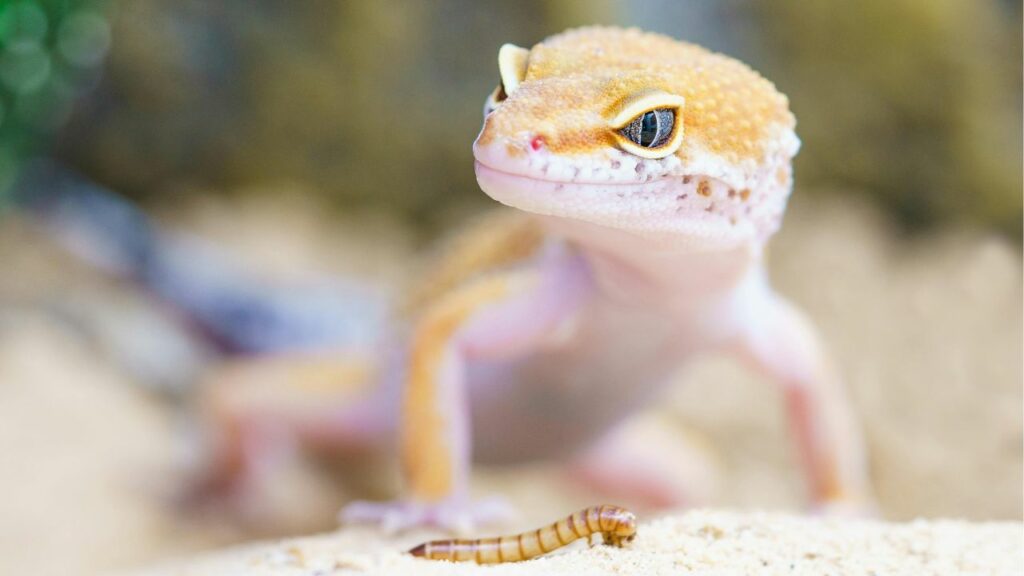
Life would be much easier if all states came to a consensus and banned the ownership of exotic animals uniformly. Making room for legal exotic animals can create problems for domestic and wild animals and the community. It prolongs an often illegal import trade. It can also cost local governments millions, as in Florida with pythons.
Animals, even our domestic cats and beloved dogs, can be dangerous animals. Owning dangerous wild animals is regulated in some states and prohibited in others.
Some of the guidelines could be clearer and more logical. In South Carolina, keeping a lion is illegal, but people can domesticate an exotic animal like a monkey. Arkansas has rules about owing bobcats as long as you don’t own more than six.
Laws like the bobcat law leave a gaping hole for people to circumvent the rules about owning wild animals. Further, these laws regarding non-domestic pet ownership are complicated to decipher. The inexpensive permit fees won’t encourage responsible behavior in people.
The laws concerning exotic animal ownership also contain clauses and statutes that make it possible for some organizations and individuals to own exotic animals, like scientific, educational, and showcasing (think circus) specific species.
Other clauses work to grandfather ownership, which does not negate liability since pets can cause significant carnage.
Exotic Animal Laws By State
Each state created and mandated its own set of legislation regarding dangerous wild animals. Still, it isn’t easy to see sense in some of these laws and exceptions:
- Alaskan pet and livestock laws say owning crocs, alligators, toucans, and macaws is okay.
- In Arizona, you can own a domestic water buffalo (which is funny since Arizona has no water 🙂
- California allows you to keep a giant panda (luckily, no longer endangered) but restricts having a pet crow.
In a nutshell, the laws governing each state are unique and problematic and allow inexperienced individuals access to dangerous wild animals. Permits are usually very inexpensive yet cost the poor animal held in captivity significantly.
Map Depicting State Laws Regarding Private Exotic Pet Ownership
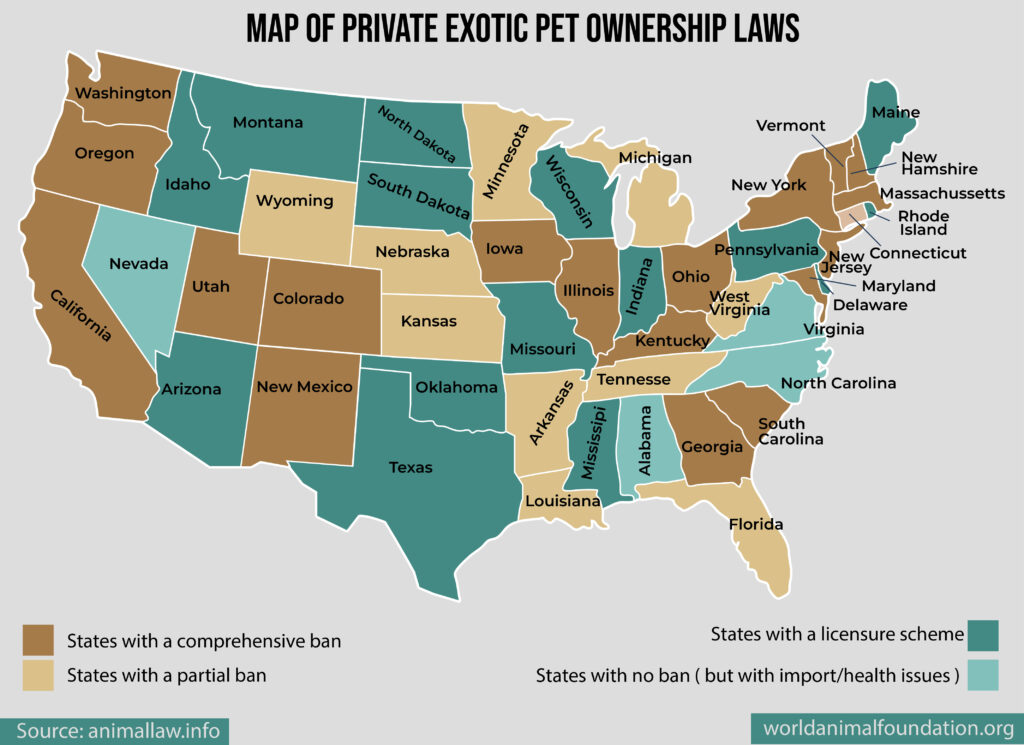
Pet Limit Laws by State
We assembled a list of animals regulated under state laws, but laws constantly evolve. Anyone who owns exotic animals under the protection of the state must authenticate their ownership.
This list does not use genus or Latin names, but we included government document links if you’re interested in each state’s exact definitions and classifications.
Alabama
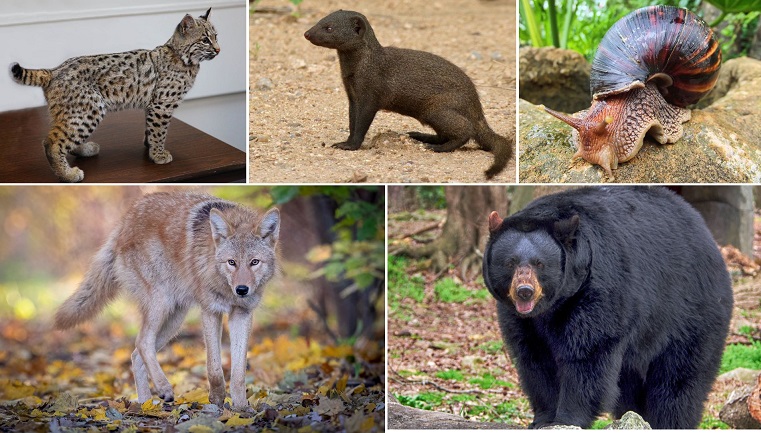
Alabama doesn’t prohibit ownership of native animals (unless under the prohibited status). There is a long list of exotic and domestic animals that aren’t allowed, including these:
- Mongoose
- Giant African snails
- Walking Catfish
- Coyotes and foxes
- Raccoons, skunks, wild rodents
- Black bears
- Mountain lions, bobcats
- Any injurious species and prohibited animals list
- Must obtain permits for non-native (owned before 2020)
- & others
Alaska
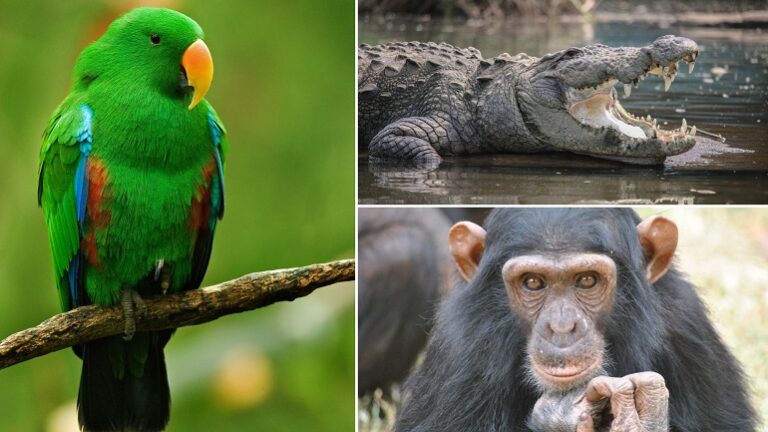
Alaska has an unusual definition of wildlife laws governing Alaskan exotic pet ownership. It’s possible to own a chimpanzee or wolf with grandfather permits.
Still, you can’t hold elk, deer, or moose for anything other than cultural or educational reasons (duly important) or a native species. But why condone these exotic and dangerous animals?
- Crocodiles & alligators
- Humped camels
- Parrots
- Chimps
- & others
Arizona

Arizona recently introduced new laws (2021) requiring state licensing for wildlife. Several categories require permits for bat rehab, game farms, and scientific research. White Amur (Grass Carp) stocking requires special permits.
Arizona residents opting to move because of these laws may not be able to transport these animals legally, and they cannot be sold and must be relinquished. People can own these animals:
- Pythons
- Domestic water buffalo
- Capybaras
- Kangaroo (joey)
- Sugar Gliders
A.R.S. §17-306 defines the illegal possession or transport of wildlife. It is best to get a lawyer to determine your ownership of any exotic or protected animal in Arizona.
Arkansas
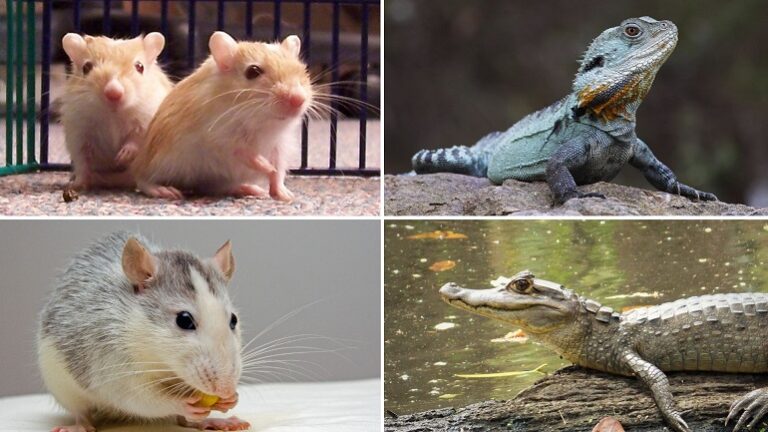
Arkansas has its own set of unique laws, and residents can own up to six of these (bobcats, raccoons, coyotes, foxes, etc.) animals taken, hunted, trapped, and captured from the wild. It further states that animals must be separated by sex and can only be sold with a dealer permit.
As a rule, residents shouldn’t own tigers, lions, and bears (seriously). Here’s a list of captive animals residents can own:
- Caiman
- Water dragon
- Bactrian or Dromedary Camel
- Mice and gerbils
You’ll need a permit for bears (2005), baboons or apes (2013), and venomous reptiles (2021).
California

California should lead in this, but some animals on the allowed list are strange choices. The Department of Natural Resources Agency of California bans the possession of most wildlife as pets. For transport or import, special permits are a must.
In California, it’s legal to keep these:
- Giant panda (in case you missed it the first time)
- Hamsters, mice, rats (pending type)
- Elk with special permits only
- Savanah cats (not 1st generation)
- and others
Colorado
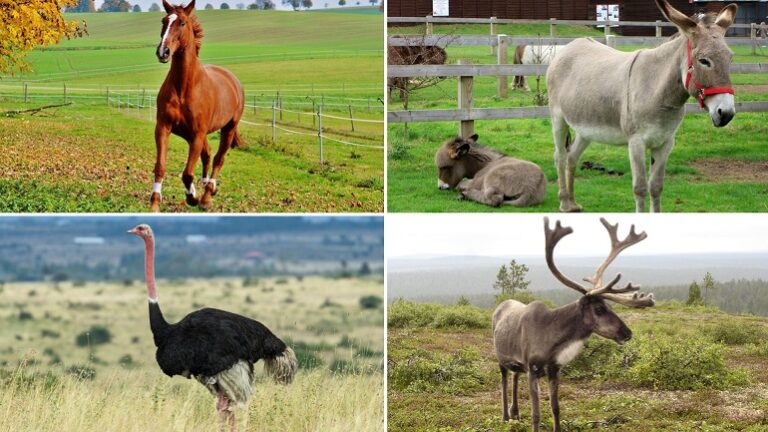
Colorado has a strong stance against private ownership governing native and exotic species. For private possession, persons are limited to a number and purpose like falconry, animal rehab, or scientific study.
However, some animals fall under the unregulated animal category, and individuals may own a controlled number (4/yr but less than 12) of these:
Residents are free to own:
- Ostrich & emu
- Horses
- Donkeys
- Rats
- Reindeer
- and others
Connecticut

Connecticut had a traumatic death of a chimpanzee owner in 2009 and amended many of its laws. Residents can own smaller animals like sugar gliders (possum) and primates under 35 lbs at maturity (permit before 2010).
Allowable pets:
- Degus (rodent from Chile)
- Hedgehogs
- Ferrets
- Dogs & cats from your local pound
Connecticut forbids ownership of apex predictors and most hybrid cats but permits for institutions and parks.
Delaware
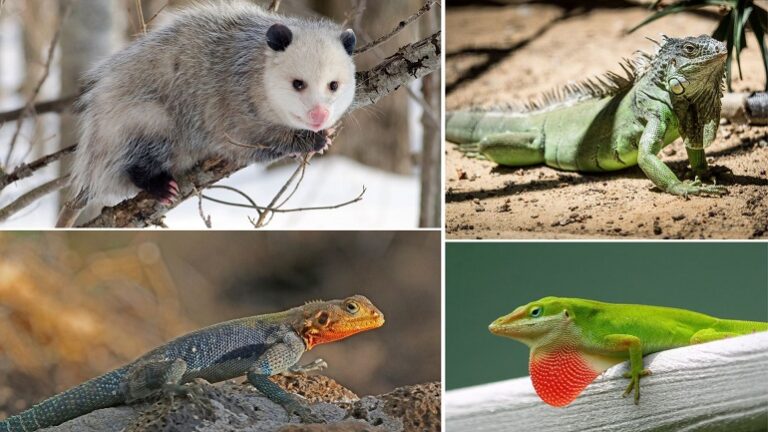
Delaware has a unique definition of exotic mammals and reptiles, meaning they’re not native to Delaware. This state requires that all exotic animals (aside from exempt) require a pet permission permit.
However, there is no list of specific animals that aren’t allowed; therefore, people can own wild cats and other potentially dangerous animals.
Delaware allows many animals without a permit:
- Anoles & agamas (lizards)
- Possum
- Iguana
- Ferrets
- and others
District of Columbia
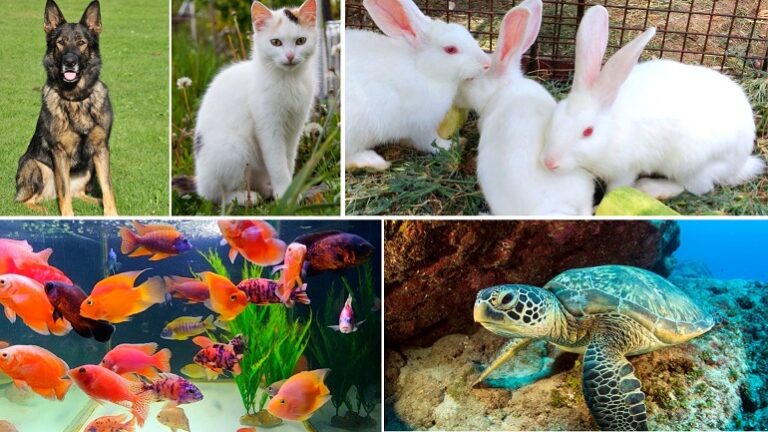
It’s against the law in D.C. to import, possess, sell, barter, trade, adopt, or give away any wild animal. Of course, there are a few exceptions, but no one shall own more than seven animals without a permit.
Residents of D.C. can own the following:
- Domestic dogs & cats (no hybrids with wild animal mixes)
- Domestic rodents and rabbits
- Cage birds
- Ferrets and racing pigeons (with permit)
- Fish, reptiles, turtles (non-venomous)
- and more
Florida
Florida should have learned its lesson that not all exotic animals make good pets. While it’s illegal to own certain python species, green anacondas, Nile monitors, green iguanas, and tegus, residents are free to cram rhinos, chimps, crocs, apex cats, and bears onto their 2.5-acre parcel of land.
Further, residents can apply for permits on other animals and need the signature of a buddy with an equal or higher license (the land of the free doesn’t apply to animals, or does it?).
Georgia
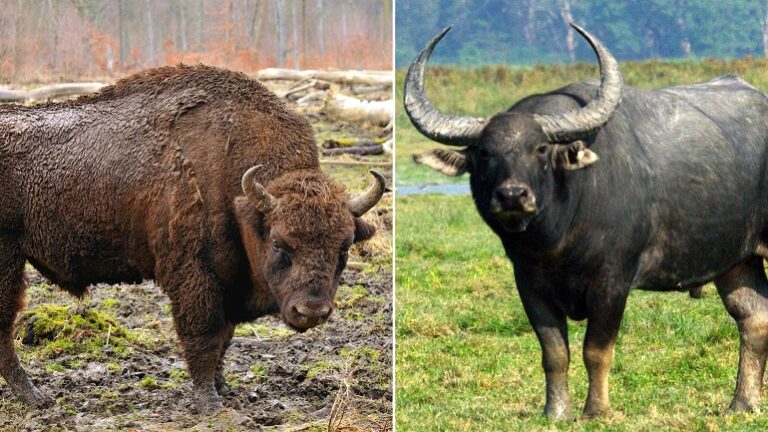
Georgia State has some strict laws governing the possession of most wildlife, and it makes sense that no one should have kangaroos, primates, elephants, crocs, and gators, or hybrid crosses.
Special permits for disabled persons owning a Capuchin monkey are mandatory. However, people are free to hold these:
- Water buffalo
- Bison
- Sugar gliders
- European ferret with permit and restrictions
Hawaii
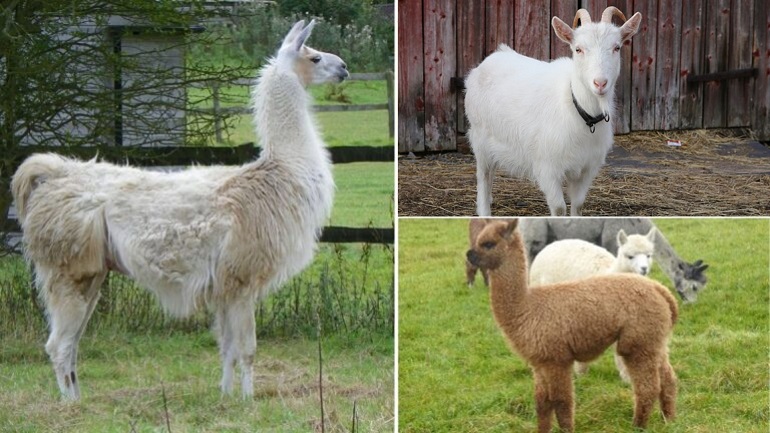
Aloha State has stringent laws and limited pet ownership and requires a permit for scientific and medical use. Remember that Hawaii has a considerably declining wild bird population due to domestic and feral cats.
In Hawaii, you may keep only a few:
- Cats and dogs
- Donkey
- Goats
- Swine including pot-bellied
- Cattle, alpacas, llamas
Idaho

Residents of Idaho may keep birds of prey for falconry, hedgehogs, and sugar gliders, but only up to four animals of that species if they are legal to hunt. There is no permit for agricultural animals, but rules for deleterious exotic animals exist.
In Idaho, people can own:
- Mink
- Captive-bred domestic birds
- Chinchillas
- Guinea pigs
- And others
Illinois
Illinois allows capuchin monkeys with a permit for disabled persons and primates pre-2011 with a license. Further, anyone who has aquatic animals needs a letter of possession. Keeping bears, lions, leopards, ocelots, cheetahs, margays, and other large felines or canines is illegal. Some native snakes are legal in Illinois.
Here’s what you can own in Illinois (up to 4 per day)
- Snapping turtles
- Bullfrogs
- Amphibians,
- Pythons, boas, anacondas with permit
- Dogs & cats
Indiana
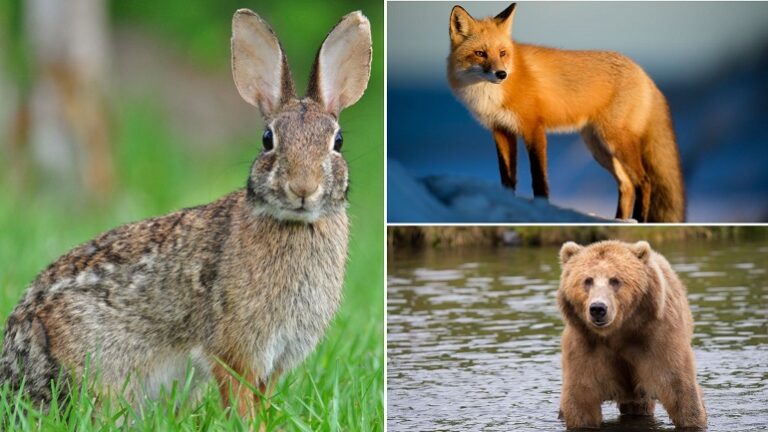
For anyone with their heart set on keeping exotic creatures like wild cats captive, move to Indiana, which has virtually no laws restricting your right to own an exotic pet (after all, animals have so few rights anyway, even under the Animal Welfare Act). Indiana splits pet ownership into classes.
Under Class III, you can keep the following:
- Bears
- Felines
- Venomous reptiles
Under Class II, you can have these pets:
- Beavers
- Coyotes
- Foxes
- Opossums
Class I
- Rabbit
Iowa
Iowa has very particular rules about wild and exotic animals; you can’t own, transport, or breed these restricted animals. Even crossbreeds with dominant wildlife features are illegal. Residents require licenses for raptors, falcons, and turtles. Any animals owned and microchipped pre-2007 require pet permits.
Iowa residents can have pet ownership of:
- Captive bred skunks
- Hybrid wolf dogs
- Hybrid 4th filial generations of Bengal or Savannah cats
If you catch 96 frogs, you can keep them too.
Kansas
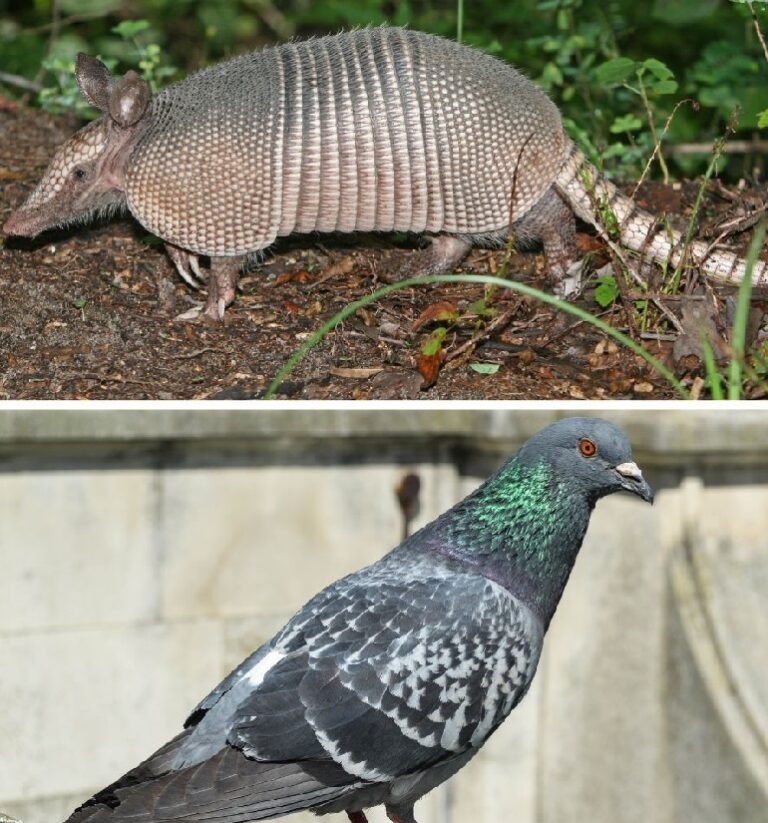
Kansas has some liberal laws regarding exotic and wild animal ownership. However, thankfully, the big feline predators, bears, and non-native venomous snakes are on the ban list.
Rules regarding amphibians and reptiles limit ownership to five per species (but no bullfrogs, common, snapping, or soft-shelled turtles).
Residents can own cougars, grizzlies, and falcons with USDA and AWA Kansas permits. Knowing the difference between a mountain lion and a cougar is essential. (Hint: there isn’t one.)
You can have as a pet:
- Armadillo (as in Piglet from Winnie the Pooh)
- Exotic and feral pigeons
- Most rodents
- And more
Kentucky
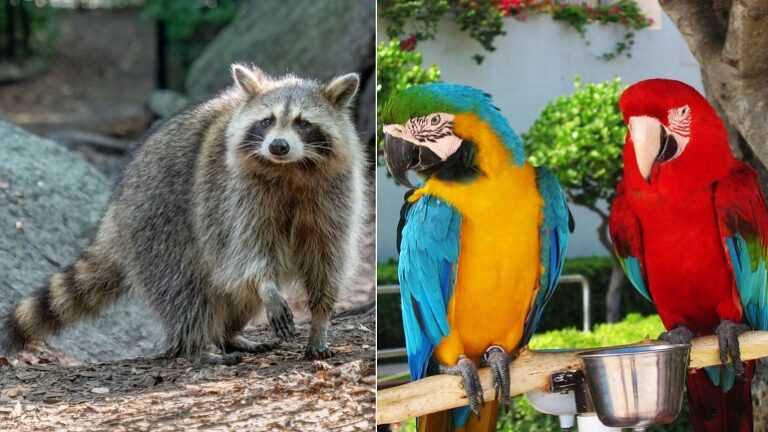
Always double-check your facts. Possessing a potentially dangerous animal or endangered animal species in Kentucky is illegal. Dangerous animals are primates, venomous reptiles, apex felines, elephants, hippos, etc. Kentucky laws are strict, and their list of dangerous or endangered animals is long.
Kentucky residents that want an unusual pet:
- Parrot
- Raccoon
- Chinchilla
- Wild ferret with a permit.
Louisiana
Louisiana state clearly says you cannot keep a wild animal as a pet, including wolves, apex cats, foxes, or any threatened and endangered animals. Persons require a permit to remove an animal from the wild for personal use. Further, you can’t use commercial gear to trap these animals.
Regardless, you must have a permit for any animal you keep as a pet.
Maine
Maine allows special permits for falconry but has many stringent laws governing the ownership of exotic animals. You can’t keep a beaver, and most certainly not kinkajous, hippos, and primates.
You need a permit for most to keep amphibians and reptiles.
You can keep (though always check as laws change):
- Coati
- Genets
- Some native wildlife, as long as you provide natural habitat
- Amphibians and reptiles (limits on number with permits)
Maryland

Anyone who is interested in owning an exotic animal in Maryland had better know the facts. Maryland has a long list of restricted pets (pre-2006 permits and exemptions). You can’t now own a primate, alligator, wild feline, bear, or venomous snake.
A person can keep the following:
- Ferrets
- Reptiles
- Trained animals for mobility.
Maryland has particular rules regarding exotic pet animals.
Massachusetts
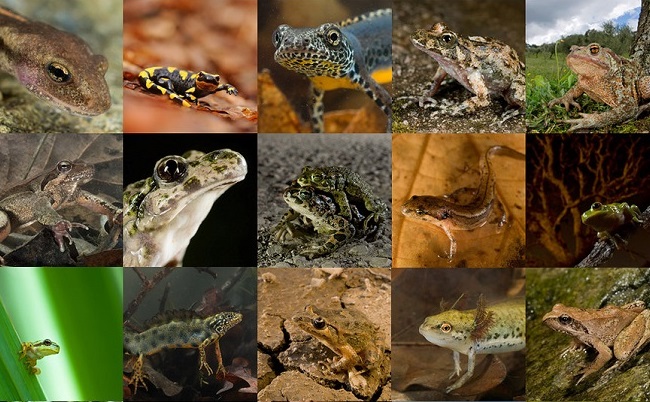
Massachusetts is clear that nobody should own any animal protected under the US Endangered Species Act, on the Red Book of the International Union of Conservation, or any animal endangered, threatened, or of concern on the Massachusetts list.
Owing these animals as pets is banned, though some animals fall under the permit-required list.
Many exotic animals require permits, but legal to own:
- Amphibians
- Turtles (limited)
- Boas and pythons and other snakes
- Ferrets (neutered/spayed and vaccinated)
- Waterfowl and birds
Michigan
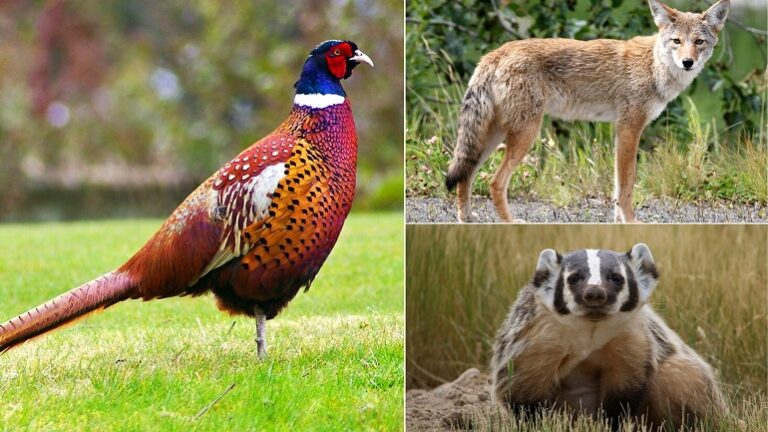
Michigan makes a simple stand and declares all non-native US animals as exotic. It further restricts wolf-dogs, large felines, and bears, prohibiting certain wild animals, reptiles, and amphibians from pet ownership. Permits for captive-bred animals allow foxes, bobcats, coyotes, and vaccinated ferrets.
Certain reptiles and amphibians are allowed in limited numbers.
Ownership with a permit of these animals:
- Badgers
- Coyotes
- Foxes
- Possum
- Pheasant (other game birds)
Minnesota
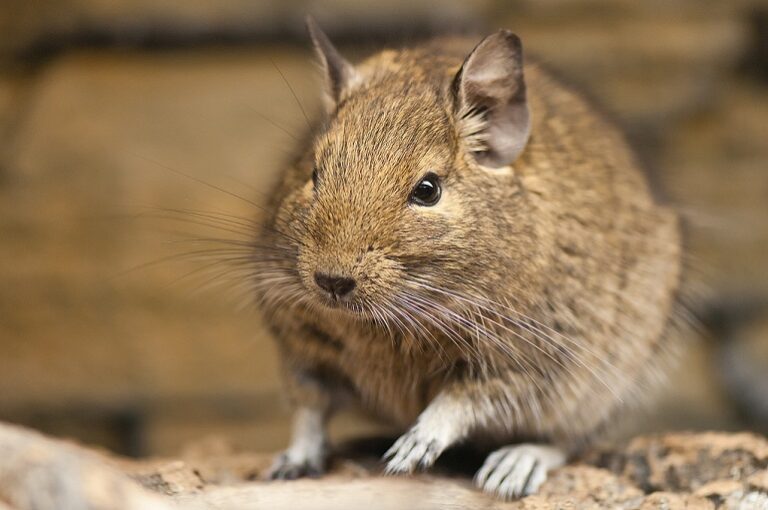
Minnesota residents can keep many domestic animals but have restrictions on regulated animals. Residents are banned from owning bears, primates, and large apex felines. Domesticated felines must be recognized by national or international cat registries (pre-2005).
Residents can keep these as pets:
- Rabbits
- Degus
- House mice, rats, hamsters, gerbils
- Sugar gliders
- Hedgehogs
Mississippi

Mississippi requires a permit for all animals kept as pets and deemed dangerous. It does allow ownership of hippos, rhinos, large cats, etc. Owners in Mississippi must have liability insurance and renew it annually.
It’s illegal to own a pet alligator (even if it’s never eaten a human). But you can choose from a long list of these:
- Orangutans
- Dingo
- Wolverine
- Tiger
- Snow leopard
Montana
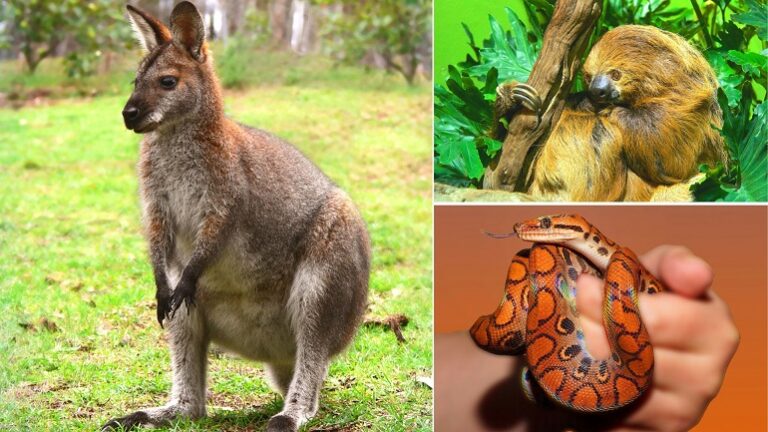
If you decide to own a bear, large cat, or large cat hybrid, you have a wild animal menagerie and must get a permit to keep them. A wild animal permit is required for an animal that hasn’t been domesticated, and permits renew annually. You can’t keep a skunk, fox, or raccoon for fear of rabies, but get a license and own jungle cats.
Montana allows you to keep the following:
- Two-toed sloths
- Wallabies
- Up to 9 captive-bred bears and cats (at ten, you need a menagerie permit)
- Several types of snakes, reptiles, and amphibians
Nebraska
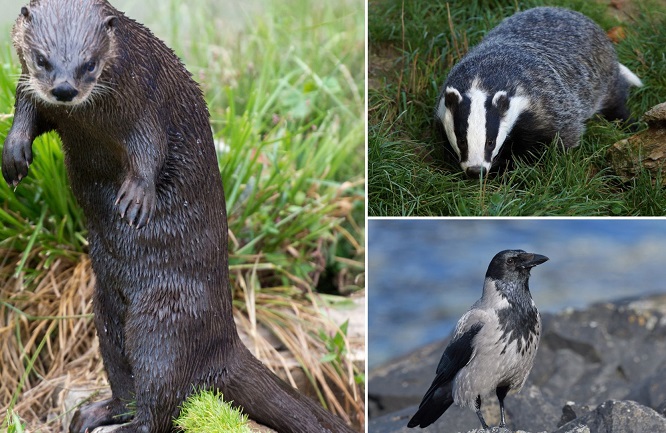
Nebraska demands wildlife permits for and including wild birds, mammals, and endangered, threatened animals. The law bans species like wolves, skunks, bears, or feral felines. It is a misdemeanor to own wildlife without a permit in Nebraska.
You can keep with a permit:
- Crow
- Badger
- River otter
- Cottontail rabbit (as long as it’s not Peter)
- And others
Nevada
Nevada has strange laws prohibiting ownership of alligators, crocs, coyotes, skunks, and moose. Still, owning elephants, marine mammals, and large felines, except mountain lions and bobcats, is okay.
In Nevada, you can tame these animals without a permit:
- Yaks
- Zebras
- Elephants
- Marsupials
- Monkeys & primates
New Hampshire
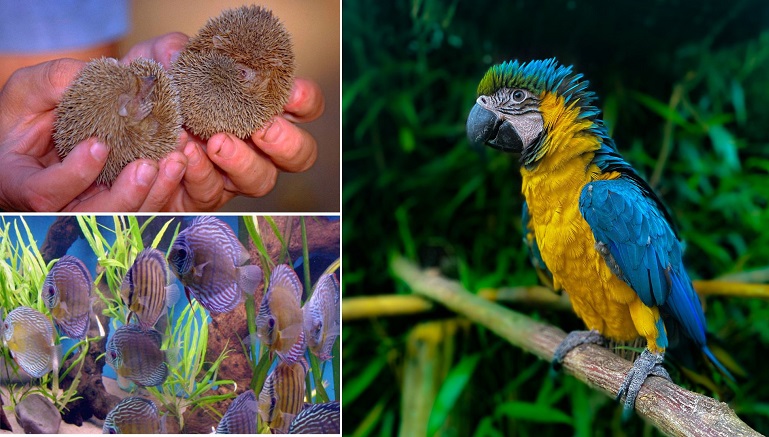
The state of New Hampshire classified animals into controlled and uncontrolled species. Controlled species require a permit (30 days in advance). The controlled list includes frogs, toads, venomous reptiles, crocs and gators, kangaroos, primates, lions, and kinkajous.
You can own:
- Ornamental aquarium fish
- Parrots
- Guanacos
- Toucans
- Tenrecs (kind of like a hedgehog-possum)
- And others
New Jersey

New Jersey has strict permit requirements (and rightly so) to keep primates, bears, non-domestic cats, and dogs. You also need lesser permits for ferrets, kinkajous, coati, and pythons.
You can keep these exotics:
- Flying squirrels
- Iguana
- Chipmunks
- Pygmy goats
- Greater and lesser rheas
New Mexico
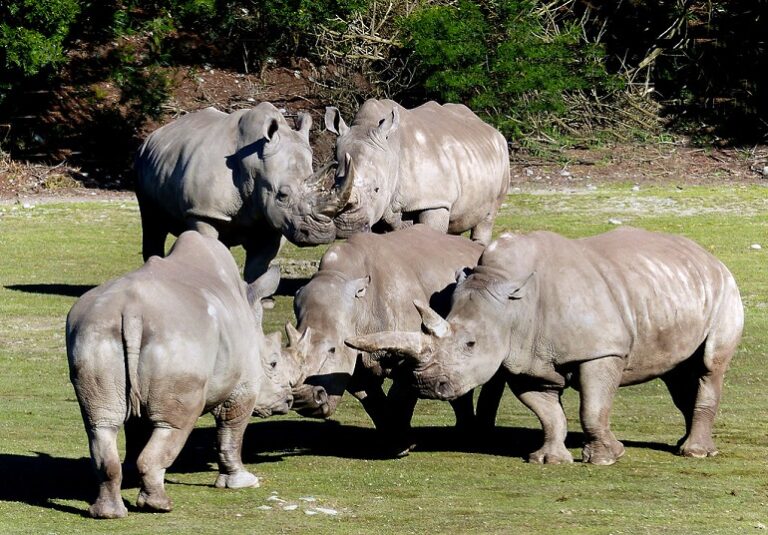
In New Mexico, health and environment departments can rule on who can own primates, skunks, foxes, or carnivores that carry zoonotic diseases. Some counties and cities have specific restrictions about animal pets, but you can’t keep big cats, crocs and gators, primates, and wolves in New Mexico.
With these vague rules, people can own:
- Just about any animal
- Rhinos
- Elephants
New York

New York is clear that you can’t own non-domestic versions of cats, dogs, wolf hybrids, bears, crocs, venomous reptiles, or primates. Although the stance is strict, people only receive fines up to $500 (which is a drop in the bucket.)
New Yorkers can own F4 (or later) hybrid felines without a permit. Also, special licenses allow individuals to own wild or endangered animals for exhibits or research.
- Dogs (remember there are many at your local shelter)
- Cats (Ditto)
North Carolina
The North Carolina state government decreed that each county or city can define its regulations about exotic and endangered animals. Since there are no official state restrictions, people who possess exotic animals must contact their local animal control authorities.
Check with your local office about what pets you can own.
North Dakota
Anyone possessing a dangerous or environmentally hazardous animal in North Dakota must obtain a license. Animals in the inherently perilous group include zebras, coyotes, beavers, large cats, and venomous reptiles, skunks, and raccoons are strictly forbidden.
People can keep:
- Arachnids
- Non-injurious reptiles
- Small rodents
- Fowl like turkey, quail, chukar
Ohio
Ohio learned the hard lesson of irresponsible wild animal keepers when over fifty animals paid with their lives when their owner set them loose in 2011 in Zanesville. So sad that 18 Bengal tigers (endangered) and 17 lions, bears, cougars, wolves, and a baboon died needlessly.
Ohio has since set stricter laws. Under the Dangerous Wild Animal Act (2014), owning an exotic pet is prohibited.
Residents can’t have more than four of each species of collective reptiles or native amphibians. Disabled persons may have a spider monkey.
Oklahoma
Oklahoma didn’t learn from Ohio; residents can keep many animals other than native bears or endemic felines. However, with a permit, you can keep venomous reptiles, large cats, and other exotic but non-native animals.
In Oklahoma, you can have these pets:
- Coatimundi
- Civet
- Fennec fox
- Not indigenous monotypic species, reptiles, and amphibians (some exceptions)
- Exotic birds
Oregon
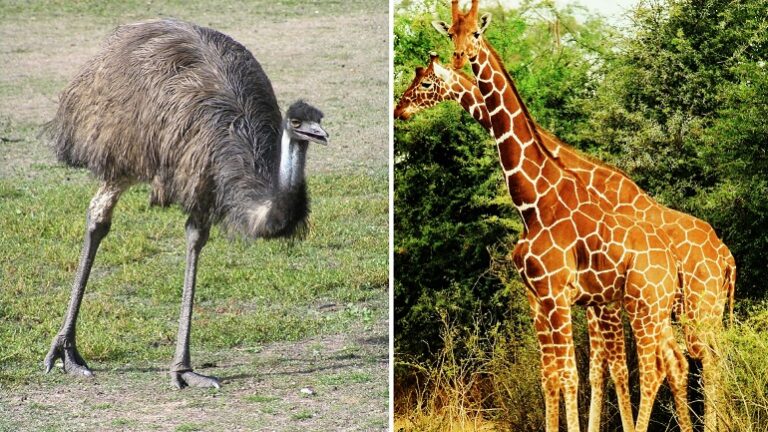
Oregon residents cannot apply for exotic pet permits (last issue 2010), and therefore, it is illegal to own a wild cat (non-native) or bear (except black bears) or non-native primates or crocs. Permits for service animals are available.
Residents can still choose exotic animals without permits like:
- Camel
- Lemur
- Alpaca
- Emu and ostrich
- Giraffes
Pennsylvania
Pennsylvania loosely defines exotic animals as exotic wildlife and includes bears, coyotes, cougars, leopards, tigers, and crossbreeds under this law. Venomous snakes require a permit. Further, no set list defines what animals are illegal.
Rhode Island

Only qualified institutions or researchers in this tiny state can keep wild carnivores like lions, wolves, and tigers. These groups need permits in Rhode Island. Animals that can’t meet rabies vaccines are strictly forbidden.
Residents can keep domesticated animals like:
- Alpaca
- Camels
- Yaks
- Jerboa
South Carolina
State authorities will confiscate large animals, such as cats, non-native bears, and apes if they’re unregistered (2018) and are not lawful pets.
In South Carolina, people can have a ferret.
South Dakota
South Dakota requires permits for non-domestic cats and dogs, bears, rhinos, elephants, and primates. Some deer, sheep, goats, or other animals that can breed with free-roaming native animals are not permitted east of the Missouri River.
South Dakota permit info is available online.
Tennessee
Tennessee uses a class system to distinguish animals into five groups. Class III requires no permits, and Class II animals that is a native species. Class I, IV, and V require exceptional circumstances and can only be kept by zoos or must have valid proof of animal ownership.
People can keep:
- Marsupials
- Giraffes
- Shrews
Texas
In Texas, you can own anything large, including wild cats, gorillas, chimpanzees, and other non-domesticated species, as long as you have a piece of paper called a certificate of registration. Persons can only own up to six of any kind and no more than 25 nongame animals. Legal acquisition of some exotic animals is necessary.
Endangered species cannot be kept as a pet.
Utah
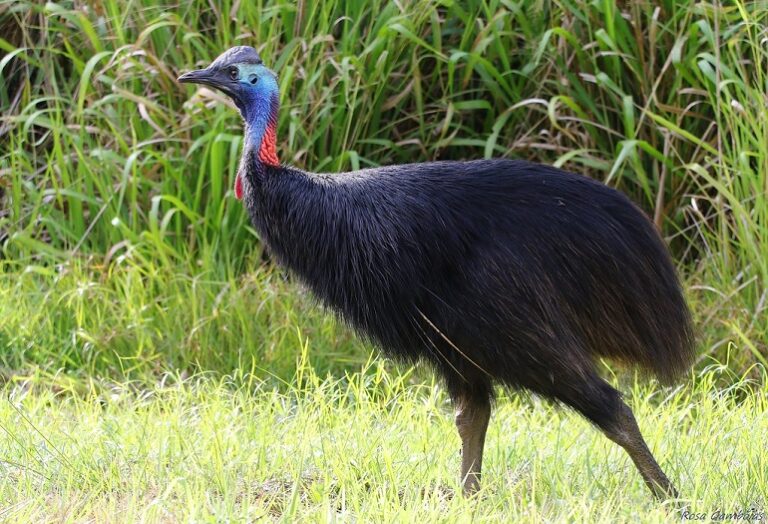
Utah categorizes animals into controlled, uncontrolled, or prohibited pets. You can’t have a pet lion, bear, primate, or skunk (and many others) on the banned list. However, you can keep beavers, bobcats, and flying squirrels from the controlled list.
Utah residents can keep these pets:
- Alligators
- Cassowaries
- Domestic elk
- And more
Vermont
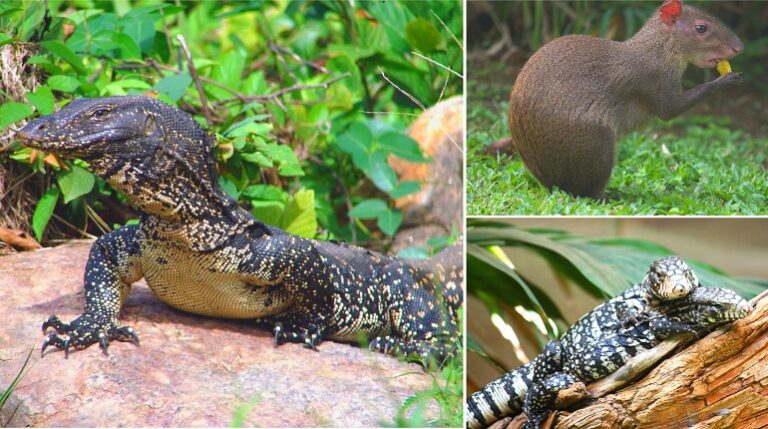
Vermont has a big problem keeping feral swine, hogs, or boars as pets but is lenient with other unrestricted animals. Due diligence is needed to ensure any exotic animal not specifically mentioned meets the criteria.
Residents can have these pets:
- Agouti
- Tegus
- Some boas or pythons
- Monitors
- Many arachnids and reptiles with permits
Virginia
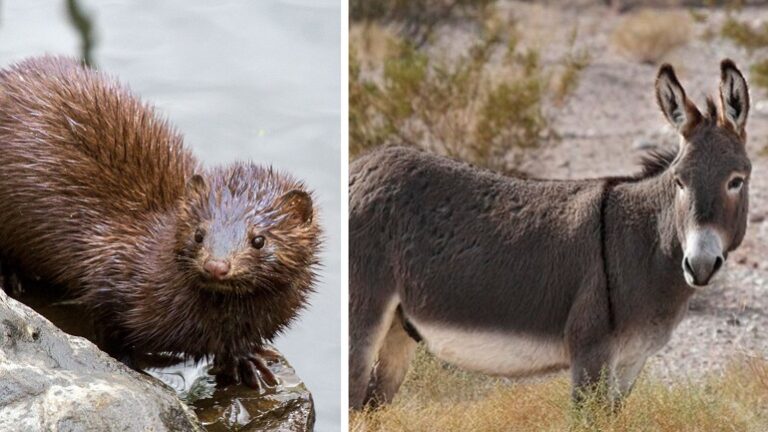
Non-native animals in Virginia require a permit, but domestic animals don’t. Further, to keep hyenas, skunks, alligators, or wild cats as a pet, you need to obtain a permit elsewhere.
Residents can keep these without permits:
- Most domestic animals
- Mink, as long as they are not wild
- Burros and asses
Washington
Washington State revoked previous laws about exotic animal ownership in 2007. Owning a pet bear, wolf, apex cat, alligator, elephant, venomous snake, and other exotic animal is prohibited. Further, there are no permits to own exotic animals as pets.
Residents can’t keep deleterious animals like mute swans, wild boars, javelinas, fallow deer, etc., that disturb native wildlife.
Normal domestic animals are allowed.
West Virginia
West Virginia forbids ownership of wild animals without a permit; yearly permits are complicated and come with a fee. Persons must provide proof of liability insurance, and the animals need a permanent ID like a microchip. There is also a grandfathered clause (2015) for some animals.
Residents can keep animals that are not explicitly banned or wild.
Wisconsin
Wisconsin requires wild animal owners to provide proof of legal purchase and requires special licenses. Squirrels, porcupines, and opossums don’t need a permit to keep as a pet.
However, there is a long list of other prohibited animals or license-required animals. Residents can own cougars, bears, and wild swine. There are no exotic pet permits.
Persons can keep arthropods, mollusks, voles, and weasels.
Wyoming

Wyoming state law decides which wild animals require a permit and which are exempt or banned. Big game trophy-hunting animals like bears, mountain lions, and moose are not allowable as pets.
Persons can keep these as pets:
- Hinnies, mules, asses & burros
- Vicunas
- Coyotes
- Jackrabbits
Laws on exotic or wild animal ownership are breathtakingly weird, and there isn’t a consensus nationally.
Reptile Laws by State
Some states have very regimented laws about reptiles and amphibians, including venomous snakes and invasive species. Here is an overview by state.
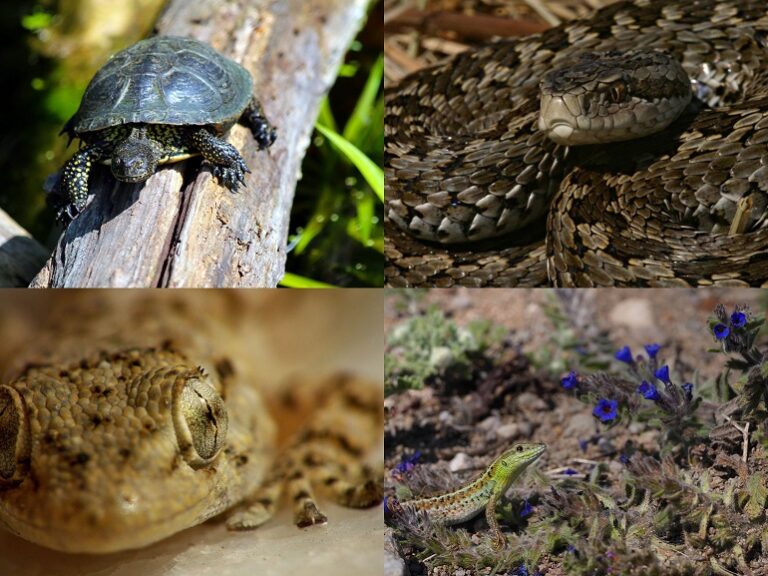
Alabama
It’s illegal to own venomous reptiles as of 2021. Injurious species are banned. It’s unlawful to release animals, even captive-bred (unless licensed). You can own native reptiles unless prohibited.
Alaska
One can own alligators, crocodiles, and non-venomous lizards and snakes in Alaska.
Arizona
Arizona has a long list of prohibited reptiles, and residents can adopt desert tortoises by special permit.
Banned reptiles include alligators, most snakes, and some lizards.
Arkansas
Some venomous species with proper permits and medical significance are legal. Residents can own some pythons, dragons, and some non-native snakes without permits.
California
California, under the Department of Natural Resources, allows several reptiles and Monitor lizards and non-venomous snakes.
Colorado
Residents of Colorado may keep snakes, lizards, turtles, caimans, and other potentially dangerous animals.
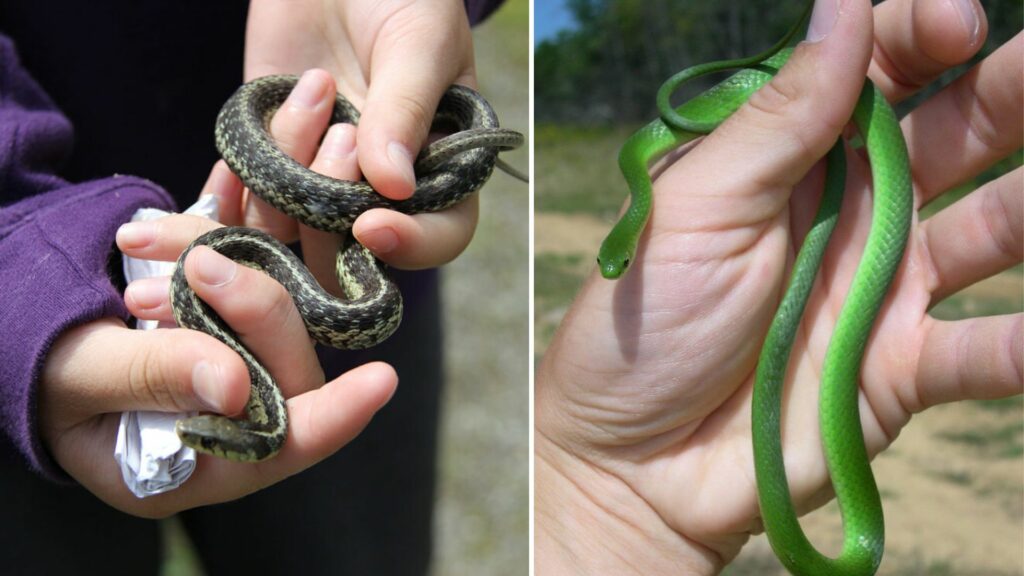
Connecticut
Connecticut requires all wild animals to have permits; persons may only have one to prevent the breeding of dangerous regulated animals.
Delaware
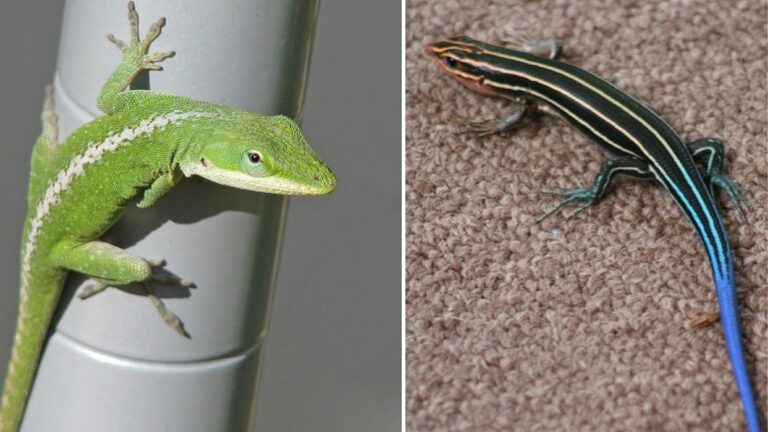
A person may own these reptiles like anoles, dragons, chameleons, skinks, lizards, and tegus.
District of Columbia
Persons can own non-venomous snakes and turtles.
Florida
Residents may not own alligators or caimans but may have reptiles that aren’t endangered or protected.
Georgia
Georgia and its Department of Natural Resources forbid ownership of certain exotic animals, including insectivores and reptiles like crocodiles, gavials, Gila monsters, and venomous snakes.
Hawaii
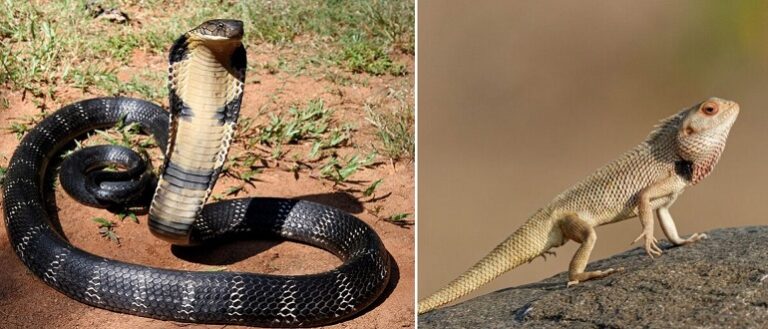
Hawaii has strict rules banning exotic animals, including alligators, geckos, most lizards, and snakes.
Idaho
Persons may keep up to four per species of native reptiles caught by hunting or trapping.
Illinois
Illinois prohibits dangerous animals as pets. Dangerous animals require special permits for organizations like zoos or educational institutes. Persons can take two snapping turtles daily from the wild (possess up to four).
Prohibited reptiles are venomous, medically significant reptiles or brown tree snakes.
Indiana
Indiana has a stringent class system for wild or exotic animals, and Class III defines dangerous exotic animals like venomous reptiles and large crocodiles that require permits.
Iowa
Iowa has a long list of banned reptiles, unless permitted pre-2007, like crocodiles, alligators, monitors, vipers, lizards, cobras, etc.
Kansas
In Kansas, you may have certain reptiles with a limit of 5 per species (but not common snapping and soft-shelled turtles). However, it’s illegal to own dangerous animals and non-native venomous snakes.
Kentucky
Inherently dangerous or endangered animals in Kentucky are banned, including venomous reptiles. A person may not keep reptiles like alligators, lizards, dragons, etc.
Louisiana
Louisiana has strict laws regarding ownership of threatened or endangered species. Large and venomous snakes require a permit.
Persons cannot keep green sea turtles, hawksbill sea turtles, Kemp’s ridley sea turtles, leatherback sea turtles, loggerhead sea turtles, gopher tortoises, or ringed sawback turtles.
A person may keep limited numbers when taken from the wild:
- No more than two box turtles per day, max 4
- No more than two razor-backed musk turtles per day, max 4
- At most, one alligator snapping turtle may be taken out of the wild per day
These reptiles must have permits if removed from the wild: Louisiana pine snakes, black pine snakes, and Eastern diamondback rattlesnakes.
Many venomous and giant constricting snakes require permits, including phytons, vipers, anacondas, mambas, etc.
Maine
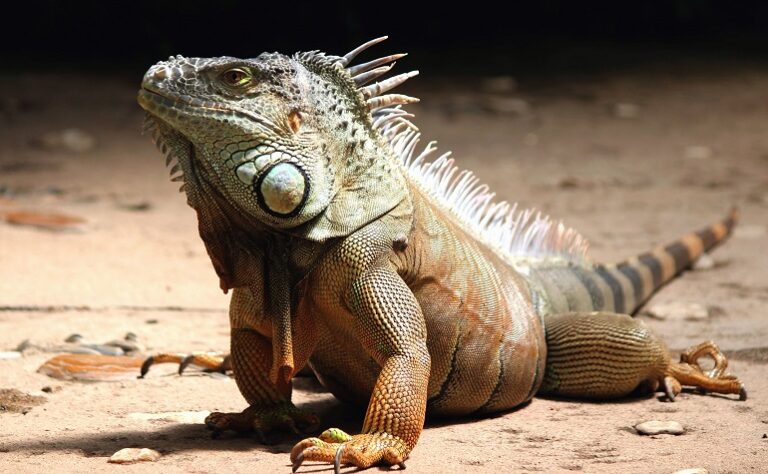
Residents may keep some wild-caught native animals as pets following regulations—reptiles, up to 2 of each species.
These captive-bred animals, like boas, Eunectes, lizards, Viperidae, pythons, other snakes, and turtles, cannot be kept as pets.
Residents with a permit can keep these captive-bred reptiles like certain iguanas, monitors, boas, pythons, some turtles, etc.
Maryland
Many venomous snakes and alligators are restricted but grandfathered pre-2006. However, residents may keep non-native reptiles not listed as forbidden and possess up to 4 of the following native snakes and salamanders and an unlimited number of albino, partial albino, or other color mutation reptiles from captive breeding.
A person can keeponeof the following without a permit: skinks, racerunner, some turtles, and snakes.
Residents of Maryland can’t keep any caimans, crocodiles, venomous snakes, hellbenders, turtles, etc.
Massachusetts
Laws prevent residents from keeping endangered or threatened species, including reptiles and venomous snakes, from any potentially dangerous species.
Unless the turtle species requires a permit, no permits are needed for turtles up to 100 each of any combination of turtles and eggs. Also, an extensive list of snakes, lizards, iguanas, and more are allowed.
Many other reptiles require permits for ownership.
Michigan
Michigan prohibits many wild-caught reptiles, and these exceptions in limits:
- Ten salamanders
- Four snapping and softshell turtles, limited to 2, and size requirement.
- Six of any other turtle (4 max), snakes, and lizards.
Forbidden reptiles include eastern massasaugas, many turtles, like wood, eastern box, garter snakes, and others.
Minnesota
Residents may not own certain species in Minnesota and follow between regulated animal and unregulated animal status.
Persons can’t own turtles, snakes, or lizards.
Mississippi
In Mississippi, people must observe the list of inherently dangerous animals that need permits.
It’s illegal to own a pet alligator.
Missouri
Dangerous or venomous reptiles must be registered with local law offices.
It’s illegal to own copperheads, cottonmouths, timber and pygmy rattlesnakes, and massasaugas.
Montana
Montana residents can apply to own wild animal menageries and keep up to ten wild animals, and they must renew annually.
Banned reptiles include alligators, pythons, anacondas, corals, cobras, etc. Allowed reptiles without a permit include boas, modern snakes, lizards, monitors, etc.
Non-native tropical and subtropical turtles can be kept as pets, pending size (4″), and aren’t a controlled or prohibited species. Allowed turtles include New Guinea softshell, Snake-necked, snapping, Central American river turtles, and more.
Nebraska
Nebraska lists all prohibited animals under state laws, and animals needing conservation are prohibited.
It’s illegal to own an alligator, crocodile, or short-horned lizard, and other dangerous regulated animals.
New Hampshire
You will need a permit applied for 30 days before obtaining any animal on the controlled species list, including reptiles like musk, painted, snapping turtles, brown, garter, venomous snakes, alligator, etc.
New Jersey
Residents of New Jersey need permits to keep snakes (pythons) and other exotic animals in the reptilian family. However, without a license, people can own some iguanas, boas, lizards, geckos, and snakes.
These are on the prohibited list: marine turtles, Gila monsters, coral snakes, alligators, cobras, etc.
New Mexico
This state has few animals or reptiles on its list, regulated in part by health and environment. Further, some cities and counties have their individual laws.
Persons can’t keep any alligators or crocodiles.
New York
New York stands firm that no one shall keep wild animals or reptiles unless grandfathered. Banned reptiles include these or receive a fine (which is a laughable $500): all venomous snakes, most pythons, monitors, dragons, and crocs.
North Carolina
North Carolina has no federal state laws concerning exotic pet animals or reptiles and allows counties and cities to regulate at will.
North Dakota
North Dakota uses inherently dangerous or environmentally hazardous guides, and all venomous reptiles require licensing or are banned.
Residents may keep some nonvenomous noninjurious reptiles.
Ohio
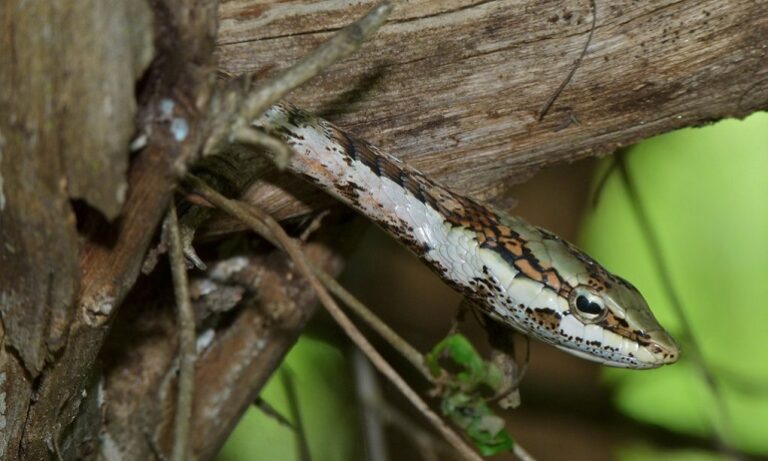
Ohio residents must apply before owning any animal on the Dangerous Wild Animal Act list.
They may keep four collected native reptiles.
Banned animals are Komodo dragons, alligators, crocodiles, and caimans, except dwarfs and Gharials.
Residents need wild animal possession permits for restricted snakes (12 ft +) like yellow anacondas, green anacondas, reticulated pythons, Indian pythons, Burmese pythons, and more. Permits for the following restricted snakes of any length:
- All Atractaspididae
- All Elapidae
- All Viperidae
- Boomslangs
- Twig snakes
Further, persons need a license to breed and sell allowable reptiles and provide detailed records.
Oklahoma
Residents can keep most monotypic species or non-indigenous to Oklahoma. However, they need a non-commercial wildlife breeder license for the following, like all venomous reptiles in the Elapidae family, including cobras and coral snakes.
Further:
- All venomous reptiles in the Hydrophiidae family, including sea snakes.
- All venomous reptiles in the Viperidae family, including vipers.
- All venomous reptiles in the Crotalidae family, including rattlesnakes, copperheads, and cottonmouths.
- Boomslangs
- Gila monsters
- Beaded lizards
Oregon
Oregon has a long list of reptiles not considered (noncontrolled) wild (really) and therefore don’t require permits, like worm lizards, prickle napes, rainbow iguanas, dragons, chameleons, skinks, many snakes, and more.
Many reptiles (pending species) require Wildlife Holding Permits or Prohibited Species Permit for lizards, garter snakes, turtles, and venomous snakes or vipers.
Pennsylvania
Pretty much anything goes in Pennsylvania as long as the person applies for an Exotic Wildlife Possession Permit. This includes Timber rattlesnakes and Eastern copperheads if legally collected from the wild (with a Venomous Snake Permit) and limited to one Timber Rattlesnake.
That may be why Pennsylvania has a high concentration of puppy mills—just saying.
Rhode Island
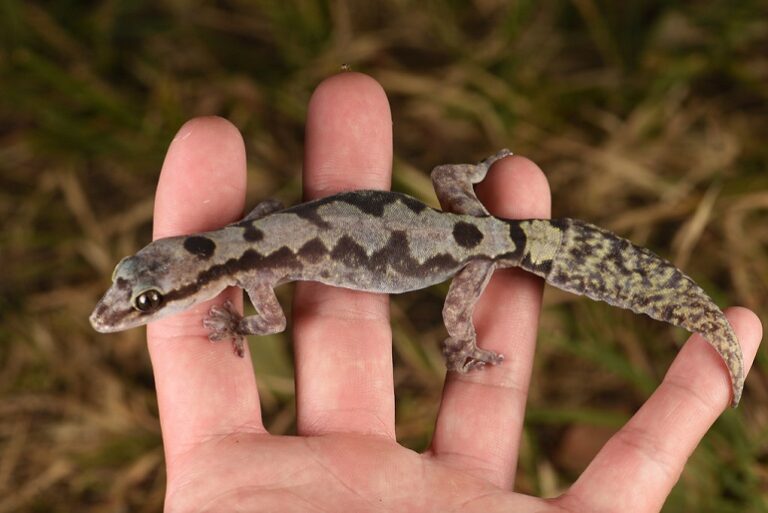
RI has a tiny landmass but a long list of reptiles that may be kept without a permit. This includes most exotic turtles, snakes, aquarium fish, lizards, and geckos unless expressly prohibited.
North Carolina
There is no specific mention of reptiles under banned exotic animals.
North Dakota
There is no specific mention of reptiles under possession permit or prohibited.
Tennesse
Animals under Class III don’t require a permit and include nonpoisonous reptiles except caimans and gavials.
Class I reptiles needing a permit encompass crocodiles, alligators, and all poisonous snakes.
Texas
You can have many unpermitted pets in Texas but can only own up to six. People need a permit from the Department of Parks and Wildlife to keep a pet alligator.
A Residential Controlled Exotic Snake Permit is mandatory for exotic venomous snakes, African rock pythons, Asiatic rock pythons, green anacondas, reticulated pythons, etc.
Utah
Residents can keep a limited number of exotic animals as pets, including alligators, without a permit (but you can’t have a prairie dog, hmph?)
These are some of the banned reptiles: banded Gila monsters, desert iguanas, Glen Canyon and Western chuckwallas, desert glossy snakes, Mojave Desert sidewinders, Mojave rattlesnakes, Sonoran lyre snakes, desert tortoises, etc.
Vermont
Vermont state requires permits for exotic animals not explicitly noted on its unrestricted list.
People can keep these without permits: alligator lizards, collared lizards, Tegus, monitors, geckos, and many boas and pythons.
These require permits: Canary Island lizards, water pythons, anacondas, Russell’s sand boas, Burmese pythons, Reticulated pythons, brown tree snakes, false vipers, false water cobras, etc.
Virginia
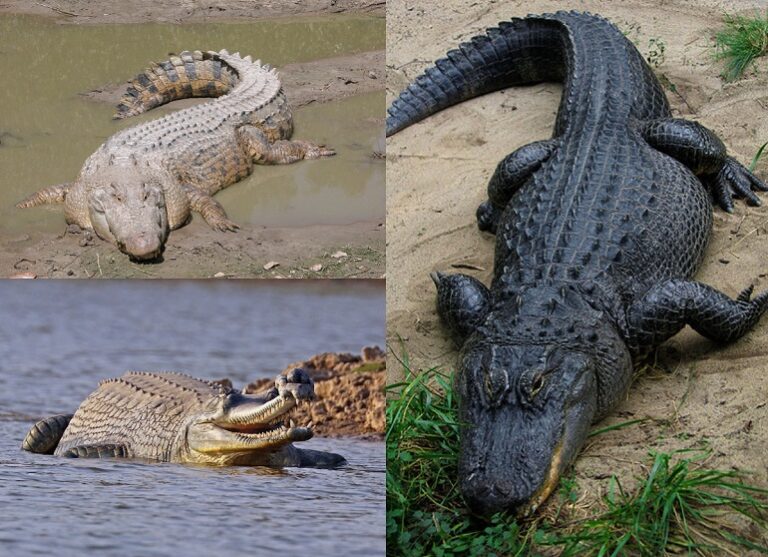
In Virginia, owners of non-native exotic animals must have a permit.
All native naturalized and albino reptiles don’t require a permit. However, people need permits for alligators, crocodiles, caimans, Gavials, and brown tree snakes.
Washington
Since 2007, Washington has enforced strict laws preventing people from keeping dangerous animals. It includes venomous snakes and other exotic animals. There are no possession permits.
They have a long list of reptiles considered too dangerous as pets.
West Virginia
Residents of West Virginia might find it too troublesome to apply for permits to own wild animals. It requires annual renewal, fees, and complicated forms. An animal can be held without a license if it isn’t explicitly listed.
Wisconsin
Residents must have a legal record to keep a wild animal and have a special license. The state doesn’t issue permits for exotic pets.
It is forbidden to keep wild or native reptiles.
Wyoming
Residents need permits to keep any wild animals not explicitly listed. However, residents may take some wild animals without permits. They must securely confine these lizards, snakes, and turtles.
What States Can You Own A Monkey

Many of us are fascinated with apes and monkeys. We are mesmerized by their intelligence and their adorable tiny fingers. Keeping trained capuchin monkeys as service animals answers a great need. However, these service pets still require lots of maintenance.
Monkeys can live for up to 40 years, and their cuteness wears off when they throw their poop at you and your guests. Monkeys can be territorial and possessive of their parent and transmit diseases and are potentially dangerous animals.
19 states prohibit monkey ownership:
- California
- Colorado
- Georgia
- Kentucky
- Louisiana
- Maine
- Maryland
- Massachusetts
- Minnesota
- New Hampshire
- New Jersey
- New Mexico
- New York
- Pennsylvania
- Rhode Island
- Vermont
- Wyoming
Some states have partial bans on keeping a monkey as a pet. Floria makes it mandatory for persons to commit to a volunteer program and comply with writing and passing an exam.
What States Allow Possums As Pets
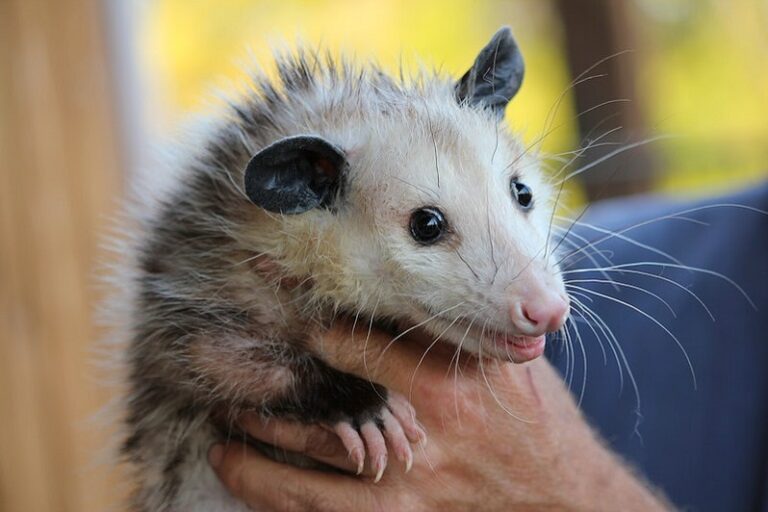
First off, there is a vast difference between an opossum (a North and South American marsupial) and a possum, endemic to Australia, New Guinea, New Zealand, and China.
Opossums are highly beneficial animals and eat a million ticks, and some states allow opossum pet ownership with a permit:
- Colorado
- Indiana,
- Maine
- Minnesota
- Montana
- New Hampshire
- North Dakota
Persons can keep an opossum as a pet in Missouri unless it’s a Virginia opossum that requires a carnivore permit. Some states allow possums too.
Kinkajou Legal Status
Anyone interested in keeping a kinkajou as a pet should lock up their honey jar. These honey bears are legal in the US. However, each state can enforce its own set of restrictions on exotic and non-native animals.
Some states require a permit, and further, your insurance and HOA (Home Owners Association) or rental agreement might prevent you from keeping a kinkajou. Get any local authoritative city and county ordinances permission on paper.
If your heart is set on a kinkajou, have you considered looking for a veterinarian in your area who is familiar with exotic pets first?
Illegal Animals To Own
Technically, if they’re illegal animals, no one has the right to own them. Some institutions like zoos, research facilities, and education departments might receive legal documentation to keep illegal animals.
Among the fifty US States, no unanimous laws declare some animals illegal and others not. Each state provides its own legislation.
In some states, a person may own a ferret, turtle, or other animals without a permit, and in others, residents require a permit, or they’re illegal to keep. However, as more laws come into effect, many states ban pet ownership of monkeys, skunks, zebras, and large dangerous reptiles.
Surprisingly, there are over 5,000 Bengal tigers, an endangered feline, in the United States. Yet, tigers are on the brink of extinction in their native habitat. Best guess, there are under 10,000 tigers left in the wild, which is generous (closer to 5,000). Yet America keeps just as many in captivity in zoos and private reserves.
Many exotic animals in the US don’t fall under the 1973 Endangered Species Act, which only covers animals removed from their natural habitat. Many exotic animals are illegal in the States.
1. Bengal Tigers, with only as few as 2000 left in the wild, are dangerous animals despite being among the most beautiful felines.
Banned in at least 19 states, Bengal tiger owners must demonstrate their animal as a captive-bred (at least four generations removed. Domesticated Bengals (not necessarily tame) can live for 20-25 years and are problematic.
2. Chausies are beautiful felines bred from a domestic and jungle cat mix. These hybrids have existed for several millennia and are banned in nine states and four cities with varying regulations. Most need to be four generations removed from their Asian ancestors.
3. Venomous reptiles serve a huge benefit to humanity and save the lives of thousands of people. However, these reptiles are illegal in most states unless permitted and banned in at least 19 states. Snake bites kill between 81,000 to 138,000 people annually and are one of the most dangerous animals in the world.
4. Hedgehogs are super cute but present a unique problem as they transmit disease (salmonella). They are banned in Georgia, California, Hawaii, Pennsylvania, Washington, DC, and parts of NYC. Hedgehogs can become invasive and destroy ecosystems.
5. Ferrets are illegal pets in California, Hawaii, NYC, Dallas, Columbia, and Washington, DC. This weasel family member threatens wildlife and can spread rabies if not vaccinated. And yes, they are adorable, but they do better in the wild.
6. Lemurs in Ohio, Nevada, Florida, and North Carolina are not legal to keep as pets, and many other states require permits. Transferring a lemur also requires approval.
Although lemurs are fascinating, they don’t make great pets since females mark their territory with their stink. They need other lemurs for companionship. Unless you’re a lemur, don’t keep one in a cage.
7. Monkeys are unique primates and close cousins of ours. It’s not legal to keep them in California, Colorado, Connecticut, Georgia, Kentucky, Louisiana, Maine, Maryland, Massachusetts, Minnesota, New Hampshire, New Jersy, New Mexico, New York, Pennsylvania, Rhode Island, Utah, Vermont, Wyoming–that’s almost half.
8. Sugar Gliders are marsupials endemic to Australia and New Guinea and listed as exotic in the US. They are illegal in Alaska, California, Hawaii, Pennsylvania, NYC, and St. Paul. The best environment for Sugar Gliders is in the wild.
9. Turtles carry contagious germs that can cause great harm and death. Further, these germs can spread to aquariums, cages, and other animals. Most states have regulations about keeping or harvesting and trading turtles unless certified as salmonella-freed. Despite this bad rap, we love to see turtles in their natural habitat.
10. Skunks, seriously, who doesn’t love seeing a Pepe le Pew waddle toward them? These adorable mammals have a potent defense mechanism. Regardless of whether they’ve been de-skunked, they’re not legal to keep in 17 states like Alabama, Florida, Indiana, Iowa, Massachusetts, and Michigan.
There is no skunk vaccine for rabies, they can be a problem, and they don’t make good pets.
11. Zebras, who knew that this iconic animal is almost impossible to tame and can be very nasty. Though zebras are striking animals, they fare better in their natural environment in Africa. Instead, rescue a donkey or mule.
Other illegal animals in some states and cities are the infamous dog breeds surrounding Breed Specific Legislation and other animals like Monk or Quaker parrots, hamsters, gerbils, alligators, and crocodiles.
License For Exotic Animals
Word of advice: don’t take the advice of a guy down the street about licenses or permits, regardless of what state you live in. Each state, and sometimes county or city, has unique laws governing exotic animal ownership and licensing.
To learn more about your local government and state rules regarding exotic animals, look under our heading ‘Exotic Animal Laws By State’ for documents and links to pertinent government offices.
Exotic Pet Ownership
Most animal lovers can appreciate that owning one of our favorite animals is a lifelong dream. However, think again unless you can provide all the care, including veterinary care, which for some animals is limited.
Instead, opt to volunteer at a local zoo or animal rehab center.
Exotic Pet Ban
Some people believe an exotic pet ban directly infringes on their rights–enough said. Of course, the well-being of animals gets lost in a tangle of political gesturing, the economy, and he said, she said.
In 2022, lost in the 3610-page document, the America Competes Act (passed by the House of Reps) lists new restrictions on importing non-native species, and a ban to transport made some people angry and others mildly elated.
Read this overview to hear more about the gory gesturing and understand how complicated the issues are. Many organizations like BornFreeUSA fight relentlessly against the exotic pet industry and generate awareness. It isn’t easy to put a figure on the exotic pet trade, but experts believe it’s worth several billion.
The best way to answer questions about exotic animal laws is to consult with your local authorities. We’ve also included a general overview and permit list above. However, since laws keep changing, stay abreast and check local offices.
FAQ’s
Can You Own a Great-Eared Nightjar?
Endemic to regions in India and Asia, this unique bird is listed as stable on the ICUN Redlist. While it is not listed as illegal to own, permits for most exotic pets and exotic pet transport are required in most states.
What States Can You Own a Tiger?
Alabama, Nevada, North Carolina, and Wisconsin don’t have laws about keeping dangerous and exotic pets. Delaware and Oklahoma also don’t ban or regulate big cats.
How Much Is a Monkey Permit?
Permit regulations depend on each state and don’t fall under federal law. Twenty-four states allow monkey ownership and permits usually only cost between $10 and $100. In Florida, you must volunteer and write an exam first.
How Much Is an Exotic Animal License?
Each state and sometimes county and city manages its exotic licenses. Some licenses for small mammals or reptiles can cost $20 and gradually increase depending on the classification of the animal. An apex cat might cost as much as $500. Usually renewable annually.
Can You Own an Elephant?
It depends. How big is your house? Typically large animals like elephants require a permit, insurance, and transport licenses and are governed differently in each state. While it’s legal to own an elephant in Nevada, for example, always check with your local authorities.
But, yes, you can in several states.
For more interesting facts about elephants, you can check our guide.
What States Is It Legal to Own a Raccoon?
Raccoons are cute and uncanny. They are legal in Arkansas, Delaware, Florida, Indiana, Michigan, Nebraska, Oklahoma, Pennsylvania, Rhode Island, South Carolina, Texas, West Virginia, Wisconsin, and Wyoming.
Is It Legal to Own a Lynx?
It depends on where you live, and four states, Alabama, Nevada, North Carolina, and Wisconsin, have no laws to prevent anyone from owning a dangerous wild animal. Delaware and Oklahoma don’t regulate apex cats.
Is it legal to Own a lion?
Yes, it’s legal in some states though you may require a permit.
Please don’t keep a lion!
Can You Own a Giraffe?
Yes, it’s legal in some states to own a giraffe.
Conclusion
There are many laws in place to protect humans, to some extent, protect animals. Thousands of people work relentlessly to bring awareness about animals in conflict and danger. Thousands more contribute silently.
Owning any animal comes with great responsibility, which means double-checking with your local and federal offices about the ever-evolving laws.
Laws regarding captive-bred species sold in local pet stores might also vary. Before ordering a pet from out of state, look into the transport laws of exotic pets. Also, remember that all animals can experience stress.
About Born Free: Born Free was the first movie I ever saw in the movie theatre and remains undoubtedly one of the most heartwarming and memorable. Remarkable people like the Adamson family break barriers and ask us to rethink.
We hope that by visiting WAF, we leave an impression too that will encourage people to make changes.


